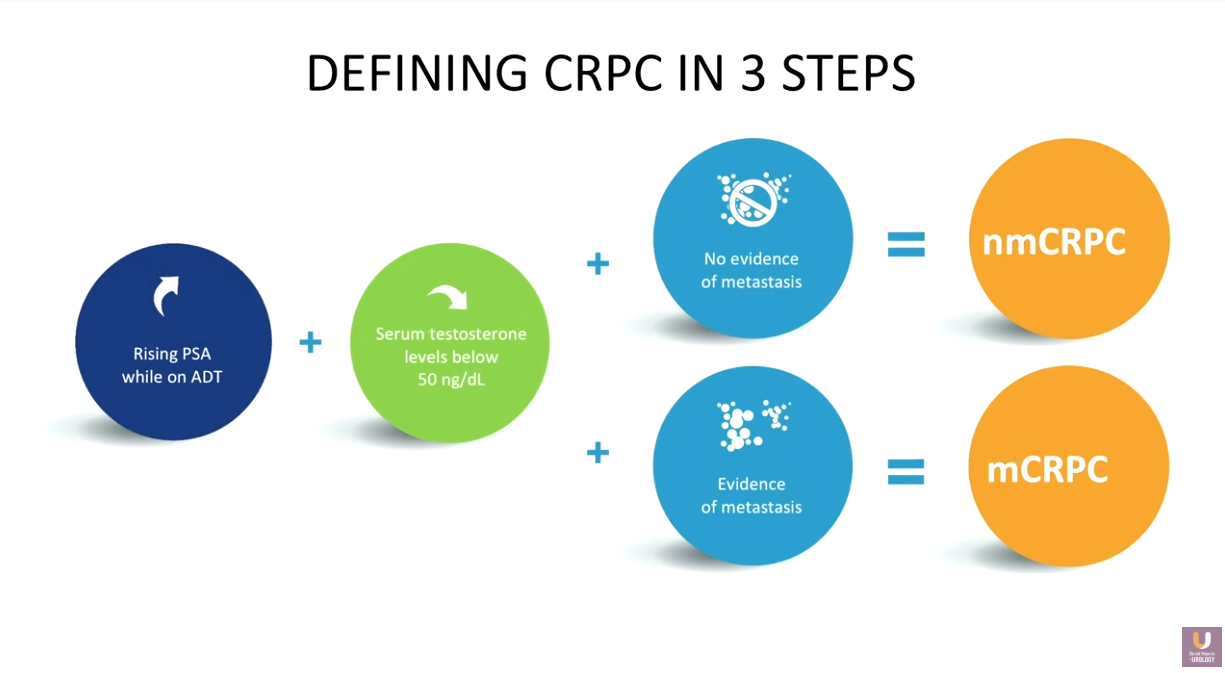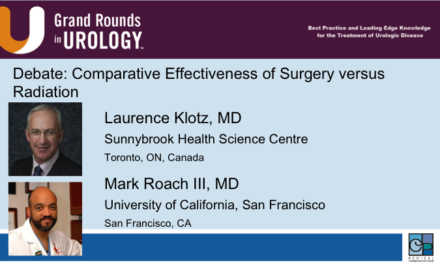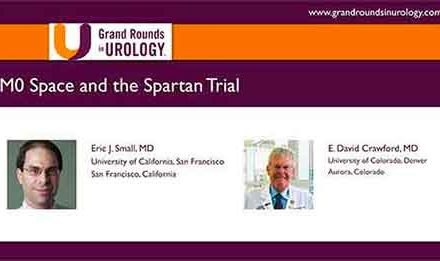E. David Crawford, MD, presented “Navigating the M0 Space” during the 27th Annual Perspectives in Urology: Point Counterpoint on November 9, 2018 in Scottsdale, Arizona.
How to cite: Crawford, E. David. “Navigating the M0 Space” November 9, 2018. Accessed Mar 2025. https://grandroundsinurology.com/navigating-the-m0-space/
Navigating the M0 Space Summary:
E. David Crawford, MD, reviews the historical developments in androgen deprivation therapy (ADT) for prostate cancer and the emergence of the non-metastatic castration-resistant, or M0, prostate cancer. He then describes future directions for treatment options for these patients with a focus on androgen pathway inhibitors.
Abstract:
The concept of androgen deprivation therapy (ADT) to control prostate cancer goes back to the 1780s. At that time, the surgeon John Hunter established the relationship between castration and the size of the prostate gland. Since then, there have been historical developments in ADT. Major developments include the advent of luteinizing hormone-releasing hormone (LHRH) agonists in the 1970s, antiandrogens in 1995, and finally third-generation antiandrogens in recent years.
However, there are significant quality of life and medical issues, notably cardiovascular adverse events, associated with ADT. In addition to these issues, ADT had played a role in the development of a new challenge facing physicians.
Perhaps due to the use of ADT in cases of biochemical failure, an iatrogenic space called non-metastatic castration-resistant prostate cancer (nmCRPC), or M0 disease, has emerged. The definition of M0 disease is the presence of biochemical progression with no radiographic progression despite castrate levels of testosterone.
Treating these patients, with the goals of prolonging life, preventing pain and complications, as well as preserving quality of life and performance status, can be a challenge for physicians to navigate. The American Urological Association (AUA) has published guidelines for clinical decision-making in CRPC. Also, research shows prostate-specific antigen doubling time (PSDAT) can help physicians risk-stratify patients with nmCRPC, as well as predict bone metastasis and death. However, there are still many unanswered questions in this space.
In the future, androgen pathway inhibitors could address this unmet need. This presentation reviews the mechanisms, major trials evaluating, and reported adverse events of abiraterone acetate, enzalutamide, and apalutamide in patients with M0 disease. Antiandrogen monotherapy without ADT might be an optimal treatment method. However, there is much research still needed on ADT and M0 space.
About Perspectives in Urology: Point Counterpoint
Perspectives in Urology: Point Counterpoint (PCP) is an annual CME-accredited conference devoted to discussing and debating the latest topics in men’s health, general urology, and genitourinary cancers. The conference’s format includes more than didactic lectures. It also includes debates, point-counterpoint discussion panels, and unique case-based presentations. Dr. Crawford presented this lecture during the 27th PCP in 2018. Please visit this page in order to register for future PCP meetings.
ABOUT THE AUTHOR
Researcher-physician E. David Crawford, MD, Jack A. Vickers Director of Prostate Research and Professor of Urology at the University of California, San Diego, has devoted his career in medicine to educating the public about men's health issues and finding effective techniques and procedures to address prostate cancer, the most common malignancy affecting men in the United States.






